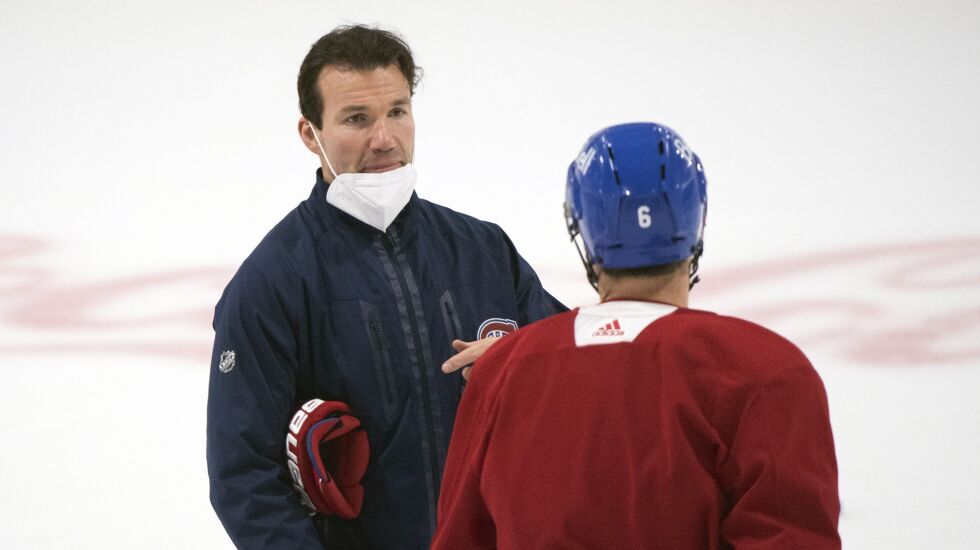
Kyle Davidson — as the Blackhawks general manager through the rebuild he’ll conduct — won’t have an easy job, but he will have a straightforward one. He’ll simply make the moves he believes will help the Hawks contend again in the future.
Conversely, Luke Richardson — as the Blackhawks’ soon-to-be-named coach through the rebuild — will have a neither easy nor straightforward job.
When the former Canadiens assistant officially assumes his new duties in Chicago next week, he’ll address reporters and fans for the first of many times during the years ahead. When training camp begins in September, he’ll address what’ll likely be a ragtag team of players for the first of even more times.
Each and every time, Richardson will need to find and maintain a delicate balance between realism and optimism, between accountability and flexibility and between transparency and subtlety.
To be fair, every NHL coach must do that sometimes — after any loss, a coach must balance honest criticism of his team’s mistakes with loyal support of his players — but the challenge will be particularly steep during such a drastic rebuild.
That’s because the organization’s on-ice objective, at least for 2022-23 as well as potentially for 2023-24, will be tanking (to maximize their draft picks). Davidson might not explicitly state that, but he’s not the type to totally lie about it, either. As the man in charge, he doesn’t need to.
Behind the scenes, Richardson has surely been informed of Davidson’s plans, and he may well remain part of the decision-making process. In the locker room and behind the press-conference lectern, however, Richardson will need to operate with significantly more caution and nuance than Davidson will.
He’ll spend every night trying to help a built-to-lose team win — and he’ll fail to do so most of the time.
He’ll need to accept that losing is inevitable — but he’ll need to avoid embracing losing or perpetuating a losing culture.
And he’ll need to impart the same mentality on his players without damaging their morale or stunting their development, the two things most important in the short term.
Indeed, it’s going to be complicated.
The well-worn hockey trope that “we have the guys we need to succeed” won’t be usable. Nor will any preseason talk of playoff aspirations, nor any midseason talk of being “one winning streak away.” Those cliches, frequent over the past few years, will be laughable now.
Avoiding them will require genuine pragmatism about the state of the Hawks’ roster and the severe shortcomings in talent, depth, experience, goaltending and just about every other category they’ll face compared to the league’s true contenders.
But that pragmatism will need to stop short of bashing or belittling the team or undermining the confidence of the players who compose it.
That, after all, would defeat half the purpose of the rebuild. A second line of Lukas Reichel, Taylor Raddysh and Philipp Kurashev — or whomever it ends up being — won’t be so good this coming year, but it could be good in a few years if those forwards continue improving even while temporarily struggling.
Derek King, as interim coach this past season, did an overall admirable job juggling the job’s contradictions and trying to strike the requisite balances. Yet even he made some missteps, such as describing his players as “drained” (April 12) and calling for more veteran additions (April 27), that demonstrated just how difficult the task is.
Richardson will be asked to do even better than King, for far longer, with an even worse team. Sure, he may benefit from the lack of pressure and expectations. But this job will not be simple.







